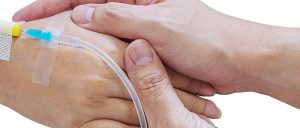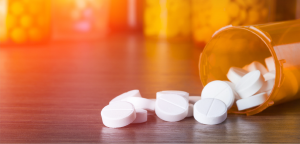
The Gavin Foundation
The Gavin Foundation is a non-profit group that operates several substance rehab programs in Boston. It also operates a number of community outreach, prevention, and collaboration programs throughout the Greater Boston area.

Once you’re addicted to drugs or alcohol, it can be challenging to quit on your own. Fortunately, help is just a phone call away. Boston Drug Treatment Centers is a Massachusetts-based directory providing you with easy access to the best drug rehab centers in the Greater Boston area and beyond.
Make the decision to get help today. Call us to find a treatment program in Massachusetts that works best for you.

The Gavin Foundation is a non-profit group that operates several substance rehab programs in Boston. It also operates a number of community outreach, prevention, and collaboration programs throughout the Greater Boston area.

Victory Programs Inc. is a collection of affiliated substance use recovery and mental health programs based in the Greater Boston Area. It has been serving the region for over 40 years, focusing on women and children, groups that have been underserved in terms of access to psychiatric care.

Whittier Street Health Center is a comprehensive outpatient services facility located at Roxbury Crossing, Massachusetts, in the Frederica M. Williams building. The center is equipped to handle substance use disorder cases as well as accompanying psychiatric conditions through their Behavioral Health Department.

Whole Living Center is a psychiatric treatment group that specializes in individual, couples, and family psychotherapy. It operates two Cambridge locations, one at Harvard Square and another at Central Square.
Boston Drug Treatment Centers is a comprehensive local directory of addiction treatment and rehabilitation centers based in Boston, Massachusetts. Our mission is to help people living with drug and alcohol use disorders to find personalized recovery solutions.
The services provided by Boston Drug Treatment Centers have become more crucial now that science has a better understanding of what causes addiction (now officially called “substance use disorder” or “SUD”).
It’s now clear that no single approach works for everyone with this condition. What works well for some individuals may not be the best choice for you and vice versa. As such, it’s especially important to find treatment and rehab programs that offer individualized treatment plans and ongoing assessments.
Boston Drug Treatment Centers offers quick and easy access to customized programs within Greater Boston and the surrounding area. This means you or your loved one can quickly connect with treatment programs that best suit your needs.
Through Boston Drug Treatment Centers, you can easily find mainstream or alternative programs that incorporate a range of evidence-based treatment protocols. Having more options often means a better chance at finding a solution that keeps you or your loved one clean for good.
Ready to get help? Our helpline is available 24/7
Detoxing at home can be dangerous and is not advised, as medical complications may arise. If you or someone you know struggles with addiction, we can help you find a detox program in Boston, Massachusetts or the surrounding areas.

Detoxification (usually shortened to “detox”) is the process where the body expels harmful toxins, usually traces of drugs or alcohol. In the context of substance use

The first priority for treating any illness is to stabilize the patient. In cases of substance use disorder (SUD), this will often involve a withdrawal management

Medical Detox in Boston, MA The first step of any effective addiction treatment program involves detoxification. The purpose of medical detox is to enable an individual to safely

Learn about Suboxone withdrawal symptoms Drug rehabs in Boston have recently reported a rise in admissions for Suboxone, a powerful opioid medication that is a combination of
As a major metropolitan center, countless residents of Boston struggle with drug or alcohol abuse. Fortunately, Boston is also home to some of the best addiction treatment and rehab facilities in the country for those struggling with an addiction to alcohol, opioids like heroin or fentanyl, cocaine, methamphetamine, MDMA, marijuana, benzodiazepines, and more.
Treatment and rehab options in the Boston area are quite diverse, from rehabs that follow the 12-step model to those with luxury features and amenities to programs integrating holistic interventions, such as mindfulness and yoga. There are also population-specific rehabs, such as women-only, LGBTQ, and teen rehab, for those who would feel more comfortable in a certain setting.
The two main treatment settings for drug and alcohol addiction include:

If you are diagnosed with or suspect a prescription opioid addiction in Boston, MA, help is available through education, awareness, and treatment.

For many people experiencing a substance addiction, Christian drug rehab programs are a popular choice. Depending on the treatment center you choose, it may offer inpatient

Finding the right Massachusetts rehab program for yourself or a loved one doesn’t have to be difficult, but with so many options, it may be hard

MassHealth is the Massachusetts branch of Medicaid and the Children’s Health Insurance Program (CHIP). The program covers various healthcare benefits, including behavioral health, drug rehab, alcoholism treatment, and substance
In Massachusetts, approximately 70 percent of those with a mental health disorder also struggle with substance abuse. Often, people misuse drugs or alcohol in order to treat the symptoms of an undiagnosed mental health condition, such as depression, PTSD, panic disorder, or OCD. And in some cases, substance abuse may cause the development of a psychiatric disorder.
Substance addiction and mental health conditions influence one another. Without comprehensive dual diagnosis Boston treatment that adequately addresses both disorders, you or a loved one may be at risk of relapse.
Several drug rehab centers in Boston employ evidence-based treatment models to improve success rates in the case of dual diagnoses or co-occurring disorders. These models include Integrated Dual Disorder Treatment (IDDT), Dual Diagnosis Enhanced (DDE), and Modified Therapeutic Community (MTC), among others.
If you are looking for a dual diagnosis Boston treatment program for yourself or a loved one, don’t hesitate to call us at Boston Drug Treatment Centers. We can connect you with a selection of rehab centers in Greater Boston that specialize in treating substance addiction and co-occurring mental health disorders.

Anxiety & Co-Occurring Substance Abuse One in 13 people around the world experience an anxiety disorder but only a third seek treatment.1 According to a 2021

Depression and Co-Occurring Substance Abuse Alcohol and drug abuse frequently co-occur with various psychiatric conditions, such as depressive disorders like major depressive disorder and persistent depressive

It’s well understood that there is a connection between psychological trauma and substance use disorder (SUD). Decades of research and hundreds of studies have confirmed links

Treating Dual Diagnosis in Boston, MA Dual diagnosis is when a person experiences both a substance use disorder (a term that covers both substance abuse and
Ready to get help? Our helpline is available 24/7
Recovery is a lifelong journey. Once you complete your Boston addiction treatment program, you will need to receive ongoing support in order to prevent relapse. Toward the end of your program, you and your treatment team will work together to create an aftercare plan that works best for you. Aftercare and relapse prevention options include:
Remember, relapse is a normal part of the recovery process and not something you should be ashamed of—if you end up having a slip or relapse, you may benefit from some additional addiction treatment. Call our helpline to find a rehab program immediately.

While the effectiveness of substance use disorder (SUD) treatment has made leaps and bounds over the decades, relapse prevention remains a blind spot in many recovery

The idea that what we eat can influence our minds is far older than our modern understanding of nutrition. Today, the ancients are being proven to

Intense cravings are, perhaps, the most defining characteristic of substance use disorders. Cravings remain after the initial medical detox period and may persist in lesser forms

While there may be dozens of conflicting ideas on drug and alcohol rehab, virtually all rehab experts agree that structure and routine should be a critical

Boston, Massachusetts is one of America’s oldest and most historical cities. First established by the Puritans, Boston has a history that dates almost as far back as the first European settlers. It is particularly well-known for many key events during and leading up to the American Revolution, including the Boston Tea Party, the Battle of Bunker Hill, Siege of Boston, and the Boston Massacre to name a few.
Today, Boston is the largest city in Massachusetts with 692,600 residents recorded at the 2019 census. It has also gained a highly respected reputation as a manufacturing hub and a center for education thanks to institutions like Harvard Medical School, Tufts University, Boston College, and Northeastern University.
Culturally, few cities rival Boston. As an “Alpha City,” it ranks high on the list of best places to live in the United States. However, today it is ground zero in the American opioid crisis—the rate of opioid-related deaths in Massachusetts is more than twice that of the national opioid overdose death rate.
Thankfully, the area is also at the cutting-edge of healthcare and addiction treatment services. Get in touch with Boston Drug Treatment Centers today for a comprehensive listing of drug and alcohol rehab centers in Boston.
For those seeking addiction treatment for themselves or a loved one, our calls are confidential and are available for 24/7 help.
Calls from your area will be answered by Legacy Healing Center, and network of treatment centers who can be found here www.rehabsnearyoudisclosures.com
We are available 24/7 to discuss your treatment options. Our representatives work for a treatment center and will discuss whether their facility may be an option for you.
These calls are offered at no cost to you and with no obligation to enter into treatment. Neither this site nor anyone who answers the call receives a commission or fee dependent upon which treatment provider a visitor may ultimately choose.
If you wish to explore additional treatment options or connect with a specific rehab center, you can: browse top-rated listings, visit our homepage, or visit SAMHSA, at www.samhsa.gov, or by calling 800-662-HELP. You may also contact The Florida Department of Children and Family Services at https://www.myflfamilies.com/